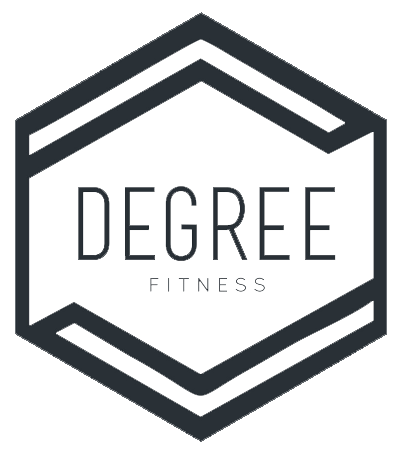How to get really “lucky”
5 years ago I took a trip on whim to Park City, Utah. It was for a “gym owners meet up” …. I didn’t own a gym. I was nervous as hell. Some of these people had owned gyms longer than I’d even been working out! I almost didn’t talk to anyone the whole first day. Until I met Chris Cooper- my first mentor. I decided for the rest of the weekend I was going to introduce myself to as many people as possible. I still see and talk to many of those people to this day.
Ever since then, the right things just seem to drop into my lap at the right moments in life. The building that Degree is in “just happened” to come up for sale right at the time I was looking to start this “gym thing for real”. Coach Kelly dropped into the first nutrition challenge I hosted in my garage, and a year a half later become a coach at Degree (with a little encouragement), Coach James lives across the street from the gym and was one of the first people to register for our Founders Club.
Now I seek out and continue to inject myself into these uncomfortable, terrifying, sweaty- palm (and arm pit) situations. I try things that I’m not sure will work, I invest money in places that I’m not 100% sure if it will pay off or not. I hardly ever play it safe. I always introduce myself first. But that’s being an entrepreneur, isn’t it? I have a feeling that being a parent is similar. You have no idea what this will bring you, but you are excited at the opportunity to try and grow and maybe even fail.
So how do you get “lucky” in life?
- Expose Yourself to More : more people, more ideas, more events, more countries… Seek experiences instead of money.
- Go First : If I’ve said this once, I’ve said it 1000 times. Make eye contact and say hello, reach out for the handshake, extend coffee date invitations. Very few people “go first” anymore- but we’re all thrilled to be invited! Tell them how excited you are, it will pull them out of their shell and ultimately out of yours (if you’ve met me, you know I have no issue showing you how excited I am to be around you).
- Work Wicked Hard- but be humble : When people see successful people, they often say things like “Wow you are so lucky, I wish I could do that”. Those people are usually incredibly gracious and usually offer some encouragement. What they don’t say is, “well it’s taken me years of incredibly hard work, long hours, not seeing my friends or family, many failed attempts and many tears to get here”. What you see of a successful person is just the tip of ice burg, they won’t show you the rest. Put your head down, and master your craft.
- Cull People From Your Life : If someone is constantly dragging you down, stop seeing them. If something is really upsetting you, stop doing it. Sounds simple, but I know that’s not easy. My first mentor quotes Emerson all the time, “Heartily know, when demigods go, the gods will arrive”.
- Open Yourself to Mentorship and Learning : Your ego is like a closed baseball glove. You could very well be missing easy pop flies because you don’t want to catch the ball “your way”. Instead of trying to re-invent the game, or running faster… try walking, with an open glove.
You don’t get to where you want by expecting things or waiting for opportunity. You create the opportunity you want- and sometimes, just sometimes, you get really lucky.
Some people believe in fate or luck, I believe in driving the car. I believe in earning the fuel.



